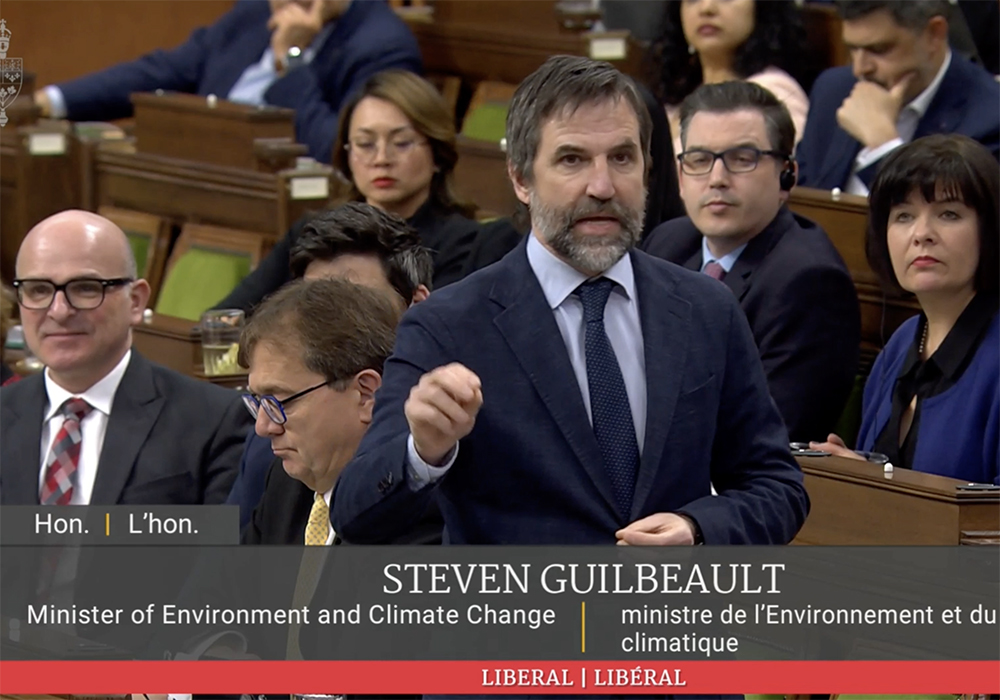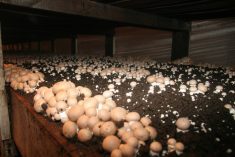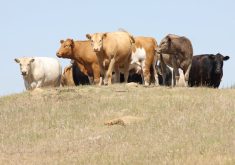UPDATED – April 25, 2024 – 0840 CST – Comments from Environment Minister Steven Guilbeault added.
WINNIPEG — Federal environment minister Steven Guilbeault stood in the House of Commons April 15 and said he has been speaking with farmers from Alberta, Nova Scotia and elsewhere and found they are more concerned about the impacts of climate change than about the carbon tax.
“Do you know what I’ve been doing Mr. Speaker? Recently, I’ve been meeting with farmers from Quebec, Alberta, Nova Scotia. I’ve been meeting with grain farmers, cattle farmers.
Read Also

Research looks to control flea beetles with RNAi
A Vancouver agri-tech company wants to give canola growers another weapon in the never-ending battle against flea beetles.
Related story: NFU not listed as official lobbyist on federal registry
“They don’t talk to me about carbon pricing. They talk to me about the hundreds of millions of dollars (in losses) due to the impacts of climate change on the farming sector in the country.”
Guilbeault made his comments in French and the quote is from the House of Commons translator.
Nonetheless, the idea that Canadian farmers are ambivalent about the carbon tax doesn’t agree with messaging from farm groups.
Grain Growers of Canada has advertising in downtown Ottawa that tells the public and politicians that grain farmers oppose the carbon tax.
“We have billboards right now on Sparks Street,” said Kyle Larkin, executive director of the GGC. “They say, ‘Stop Unfairly Penalizing Grain Farmers.’ … It’s all about how carbon pricing is still applied to natural gas and propane used in grain dryers.”
Janet Krayden, an agri-workforce expert with Mushrooms Canada, is curious to know which farmers and farm groups are delivering such a message to Guilbeault.
Most agricultural groups in Canada are worried about the carbon tax. They say it increases the cost of drying grain, transportation of goods to farms and heating bills.
“Heating barns is the biggest cost for farms to sustain life for livestock and grow crops indoors in the winter,” Krayden said on X (Twitter). “Heat is needed in a country with cold winters like Canada…. Heat pumps and wood chips do not cut it in most regions of Canada.”
In an email, a spokesperson from the minister’s office said Guilbeault has met with farmers in Ottawa and in different parts of the country, including a mixed farmer in Peterborough, Ont., and with Alberta beef producers in Ottawa.
“During these conversations, he has heard directly from them about their farming operations and the modern stewardship practices that are enabling Canada’s agricultural sector to continue increasing food production, while simultaneously reducing emissions and becoming more competitive,” the spokesperson said.
“(He) has heard directly from beef farmers in Alberta who are leaders in environmental sustainability but face difficult management decisions as a result of severe drought and who are concerned about the loss of grasslands.”
As well, Guilbeault recently met with grain producers and representatives of Grain Growers of Canada.
They shared a briefing on the Road to 2050, which is Grain Growers’ policy recommendations to make grain production more sustainable and profitable.
“While Minister Guilbeault is aware of their position on carbon pricing, this report does not reference carbon pricing,” the spokesperson said.
“All producers that Minister Guilbeault has met with agree that Canada’s agricultural sector has a duty to sustainably feed the world, and Minister Guilbeault supports their efforts.”
Grain Growers of Canada and most farmers would agree that the country’s ag sector has a duty to sustainably feed the world, but there is disagreement on how to get there.
Most producers and farm groups are opposed to the concept of carbon pricing and the carbon tax, including farmers in Quebec.
Larkin was in Quebec last month for the Producteurs de Grains du Quebec annual general meeting.
“I can tell you every single grain farmer I spoke to … is no fan of the Quebec system. They want to be exempt on natural gas and propane (for grain drying).”
Quebec has its own carbon pricing system in which farmers and other citizens don’t pay the federal tax.
“They’re taxed by their provincial government,” Larkin said.
The Canadian Cattle Association did meet with Guilbeault in March, but the topic was the environmental stewardship award. A cattle producer from the Calgary area, who won the award, met with the minister.
“Our meeting was really pointed at that … stewardship of the land,” said CCA general manager Ryder Lee.
The CCA avoids commenting on the “cut and thrust” of debate in the House of Commons, he added, but its position on the carbon tax is consistent and clear.
“We’ve been doing a lot of work on (Bill) C-234.… I don’t think there’s any doubt where we sit on that.”
That bill would exempt natural gas and propane for grain dryers from the carbon tax. A previous version of the bill would also have exempted fuel for barn and greenhouse heating.
Contact robert.arnason@producer.com


















